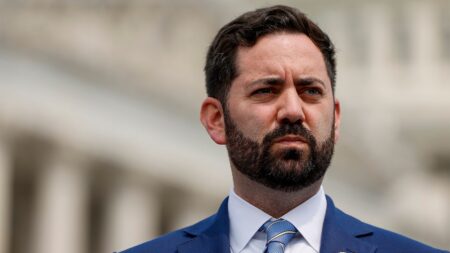IRS enforcement efforts are reaching higher altitudes with a new initiative that will check whether deep-pocketed businesses are following tax rules on corporate-jet use.
Dozens of companies and large partnerships will be audited about the high-profile perk, the Internal Revenue Service said Wednesday.
The tax code allows businesses to take deductions for the expenses of aircrafts that are bought and used in the normal course of business.
Yet the IRS is concerned too many companies and their C-suite executives are mixing business and pleasure by using company-jet flights for personal reasons — and still taking business write-offs when they should not.
Roughly three to four dozen new audits will start in the spring, IRS Commissioner Danny Werfel told reporters Wednesday.
“It’s a complex area where IRS work has been stretched thin,” Werfel said. “With expanded resources, these aircraft audits will ensure that high-income groups aren’t flying under the radar with their tax responsibilities.”
There’s a lot of money at stake when factoring in other tax breaks that businesses get on major purchases like an airplane. In the types of tax returns that are at issue, Werfel said “the amount of the deduction for aircraft travel can be in the tens of millions of dollars. That’s why it’s so important that we get this right.”
Major publicly traded companies spent $65 million in 2022 so their executives could fly corporate jets for personal reasons, according to a Wall Street Journal report last month. The sum is a roughly 50% increase from pre-pandemic times, the article noted.
While the audits will start with corporations and businesses, it may be necessary to start looking into individual tax returns as well, Werfel added.
Companies can deduct the costs of using and maintaining a private aircraft, but tax rules say the expenses have to be part of the “ordinary and necessary” costs of conducting their business. Meanwhile, personal travel on the company jet counts as income in the eyes of the IRS; there’s even a formula to determine the money value of personal trips for tax purposes.
There are two ways that tax noncompliance could be playing out with corporate-jet use, according to Werfel.
Businesses may be claiming tax deductions that are too large because they aren’t excluding personal travel from their calculations, he said. Additionally, the people using business jets for personal use may not be reporting the imputed income on their taxes.
The announcement on the auditing of company-jet use is yet another effort by the IRS to show how it’s using a massive funding influx from 2022’s Inflation Reduction Act.
The jet audits are separate from other recently launched examinations of corporations and partnerships, Werfel noted. The IRS says it’s recently collected more than $500 million from households worth at least $1 million that owed at least $250,000 in tax debts.
Congress approved $80 billion in extra funding for the IRS over a decade as part of the Inflation Reduction Act, which became law when Democrats controlled Congress in 2022.
More than half of that money is earmarked for IRS enforcement of businesses and rich taxpayers, though putting it to use hasn’t gone smoothly: Over $20 billion has been pulled back after negotiations with congressional Republicans, and the extra IRS funding is still a point of contention on Capitol Hill.
Read the full article here












